The National Sleep Foundation used a survey to determine whe
The National Sleep Foundation used a survey to determine whether hours of sleep per night are independent of age (Newsweek, January 19, 2004). A sample of individuals was asked to indicate the number of hours of sleep per night with categorical options: fewer than 6 hours, 6 to 6.9 hours, 7 to 7.9 hours and 8 hours or more. Later in the survey, the individuals were asked to indicate their age with categorical options: age 39 or younger and age 40 or older. Sample data follow.
Conduct a test of independence to determine whether hours of sleep are independent of age. Using a .05 level of significance.
Compute the value of the 2 test statistic (to 2 decimals):
The p-value is:
.
What is your conclusion?
b. What is your estimate of the percentages of individuals who sleep fewer than 6 hours, 6 to 6.9 hours, 7 to 7.9 hours and 8 hours or more per night? Round your answer to one decimal place.
| Hours Of Sleep | 39 or Younger | 40 or Older |
| Fewer than 6 | 38 | 36 |
| 6 to 6.9 | 60 | 57 |
| 7 to 7.9 | 77 | 75 |
| 8 or More | 65 | 92 |
Solution
The National Sleep Foundation used a survey to determine whether hours of sleep per night are independent of age (Newsweek, January 19, 2004). A sample of individuals was asked to indicate the number of hours of sleep per night with categorical options: fewer than 6 hours, 6 to 6.9 hours, 7 to 7.9 hours and 8 hours or more. Later in the survey, the individuals were asked to indicate their age with categorical options: age 39 or younger and age 40 or older. Sample data follow.
Hours Of Sleep
39 or Younger
40 or Older
Fewer than 6
38
36
6 to 6.9
60
57
7 to 7.9
77
75
8 or More
65
92
Conduct a test of independence to determine whether hours of sleep are independent of age. Using a .05 level of significance.
Chi-Square Test
Observed Frequencies
Column variable
Calculations
Hours Of Sleep
39 or Younger
40 or Older
Total
fo-fe
Fewer than 6
38
36
74
2.48
-2.48
6 to 6.9
60
57
117
3.84
-3.84
7 to 7.9
77
75
152
4.04
-4.04
8 or More
65
92
157
-10.36
10.36
Total
240
260
500
Expected Frequencies
Column variable
Hours Of Sleep
39 or Younger
40 or Older
Total
(fo-fe)^2/fe
Fewer than 6
35.52
38.48
74
0.1732
0.1598
6 to 6.9
56.16
60.84
117
0.2626
0.2424
7 to 7.9
72.96
79.04
152
0.2237
0.2065
8 or More
75.36
81.64
157
1.4242
1.3147
Total
240
260
500
Data
Level of Significance
0.05
Number of Rows
4
Number of Columns
2
Degrees of Freedom
3
Results
Critical Value
7.8147
Chi-Square Test Statistic
4.0070
p-Value
0.2607
Compute the value of the 2 test statistic (to 2 decimals): 4.01
The p-value is: 0.2607
.
What is your conclusion?
Calculated P=0.2607 > 0.05 level of significance.
The null hypothesis is not rejected.
We conclude that hours of sleep are independent of age.
b. What is your estimate of the percentages of individuals who sleep fewer than 6 hours, 6 to 6.9 hours, 7 to 7.9 hours and 8 hours or more per night? Round your answer to one decimal place.
Fewer than 6
14.8%
6 to 6.9
23.4%
7 to 7.9
30.4%
8 or more
31.4%
| Hours Of Sleep | 39 or Younger | 40 or Older |
| Fewer than 6 | 38 | 36 |
| 6 to 6.9 | 60 | 57 |
| 7 to 7.9 | 77 | 75 |
| 8 or More | 65 | 92 |
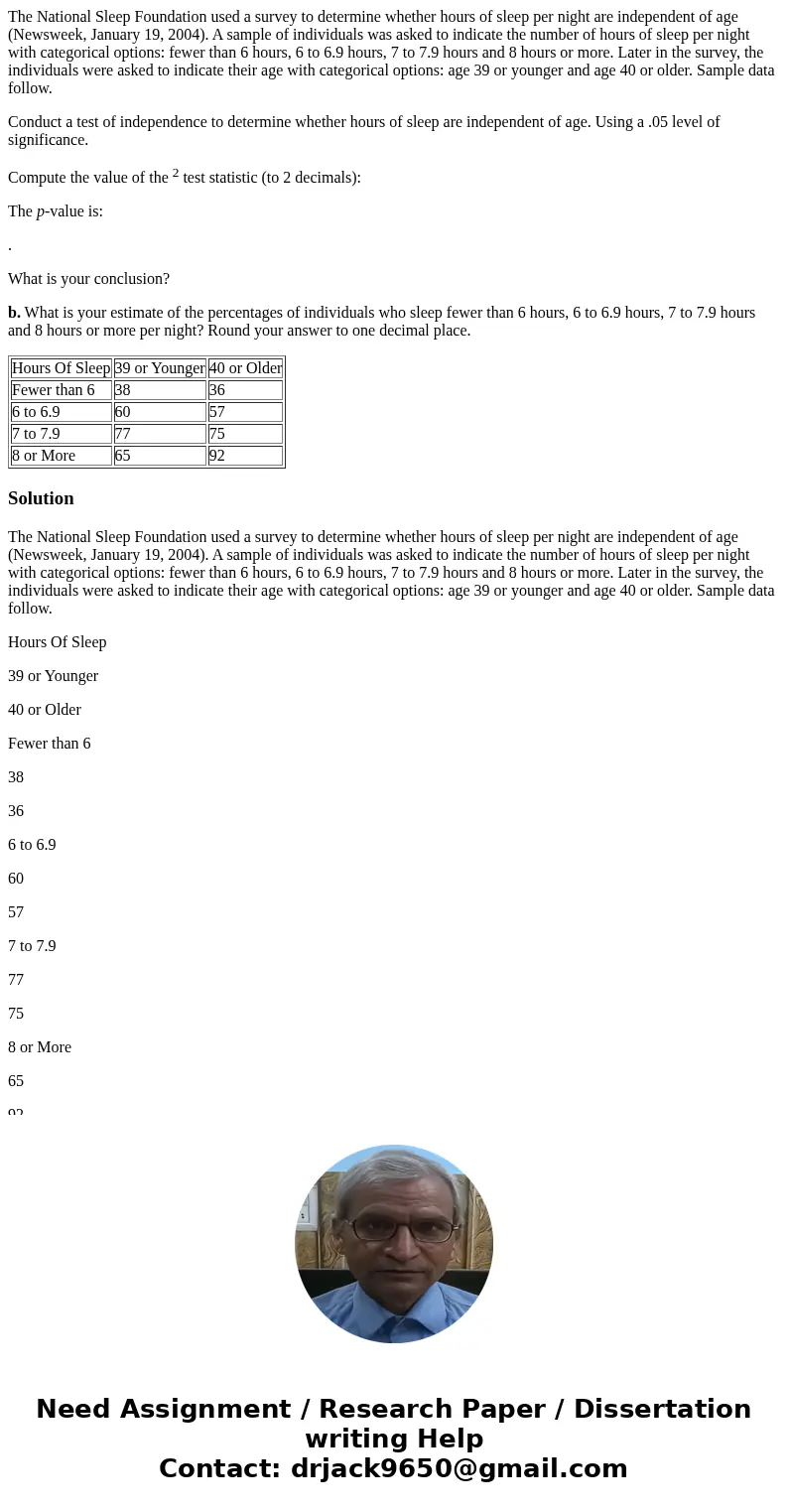
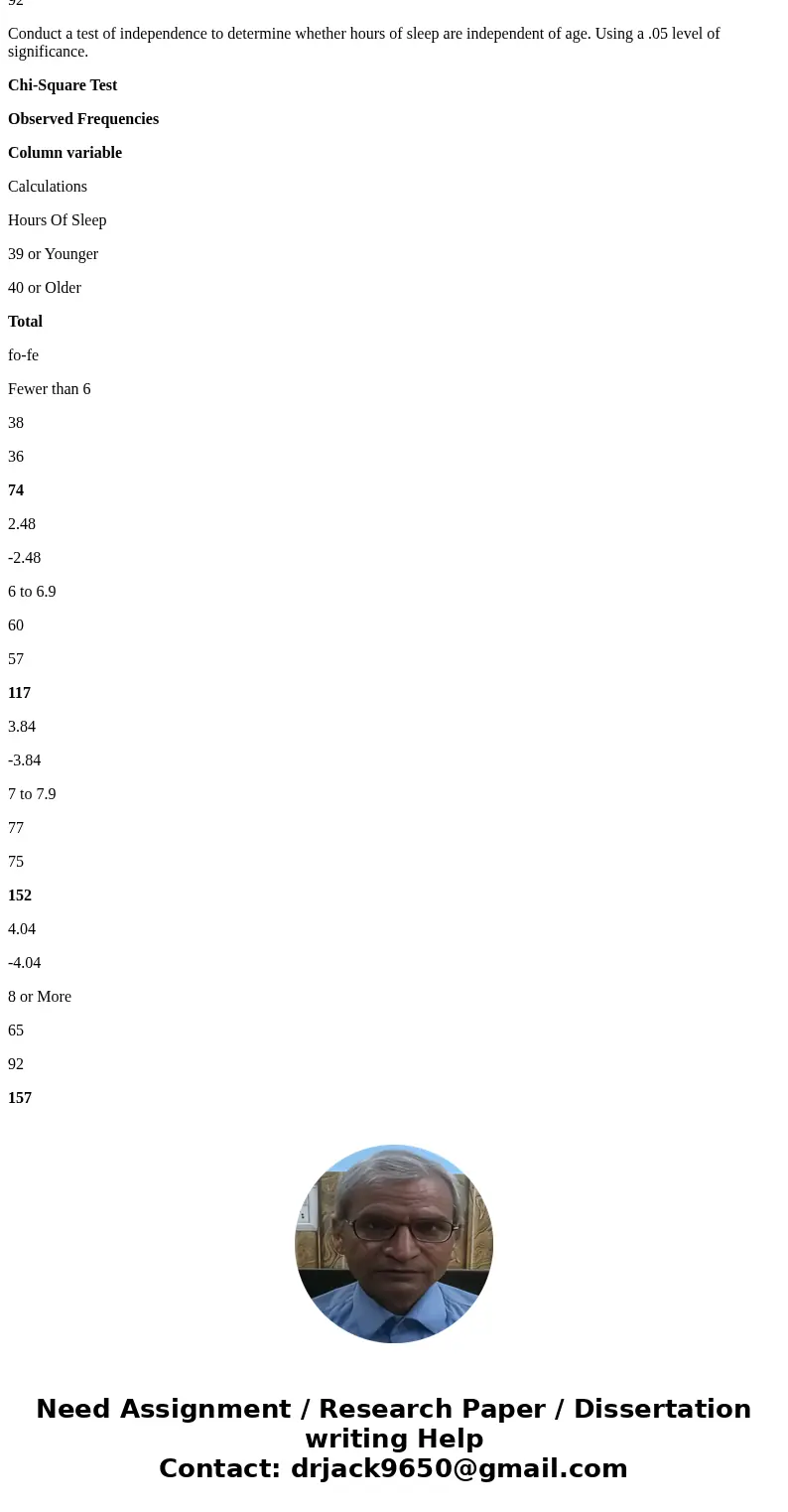
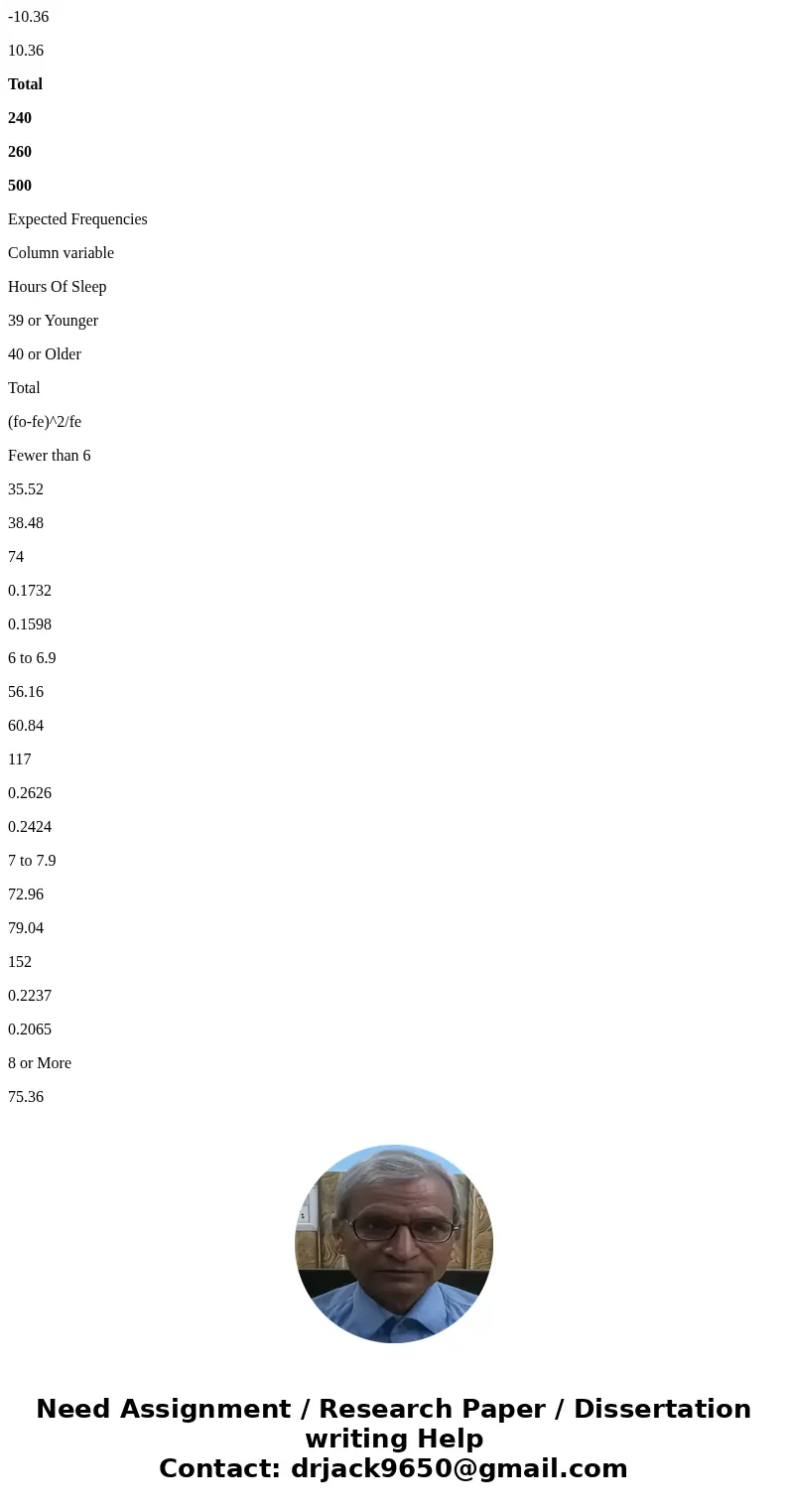
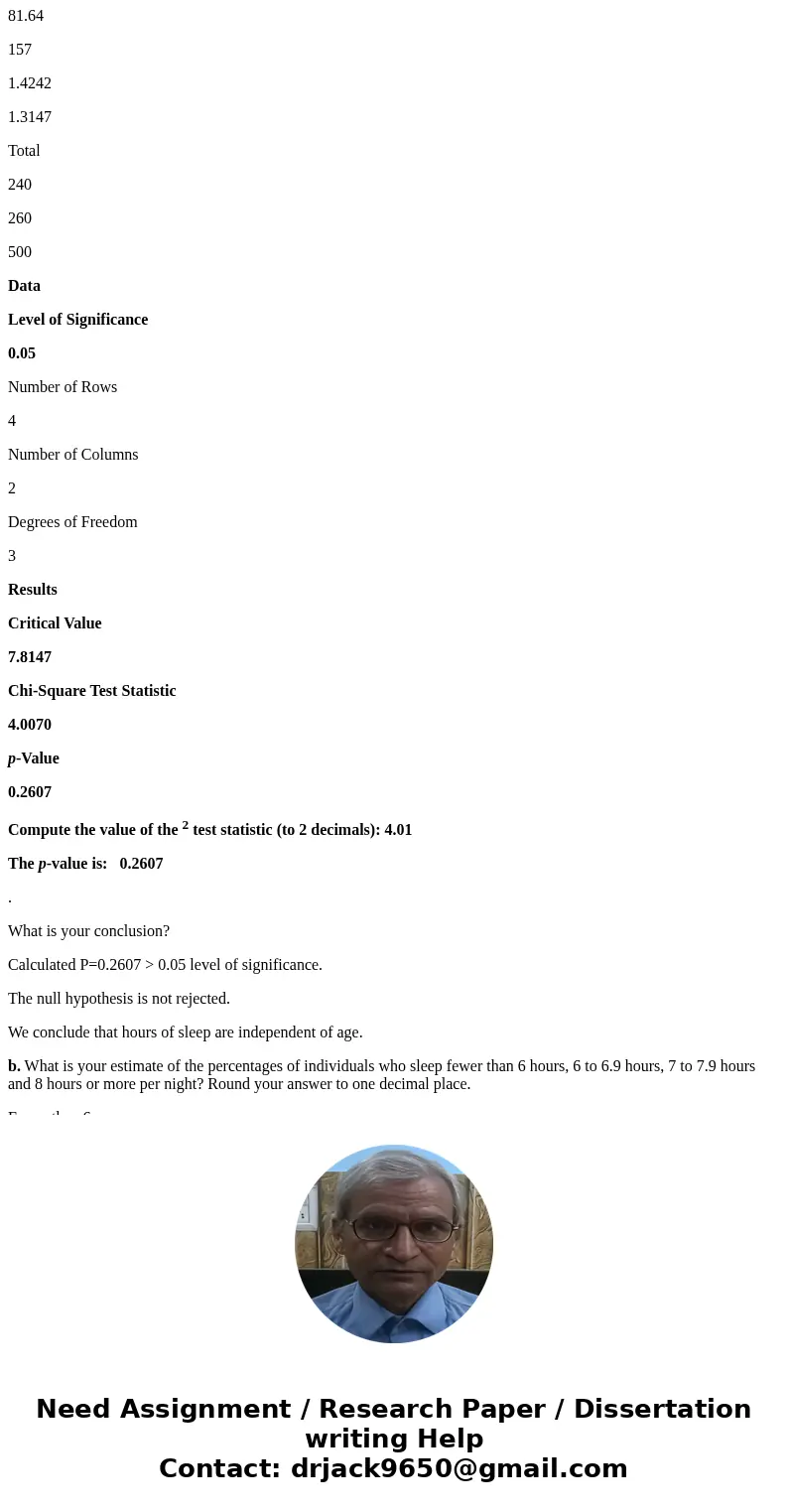
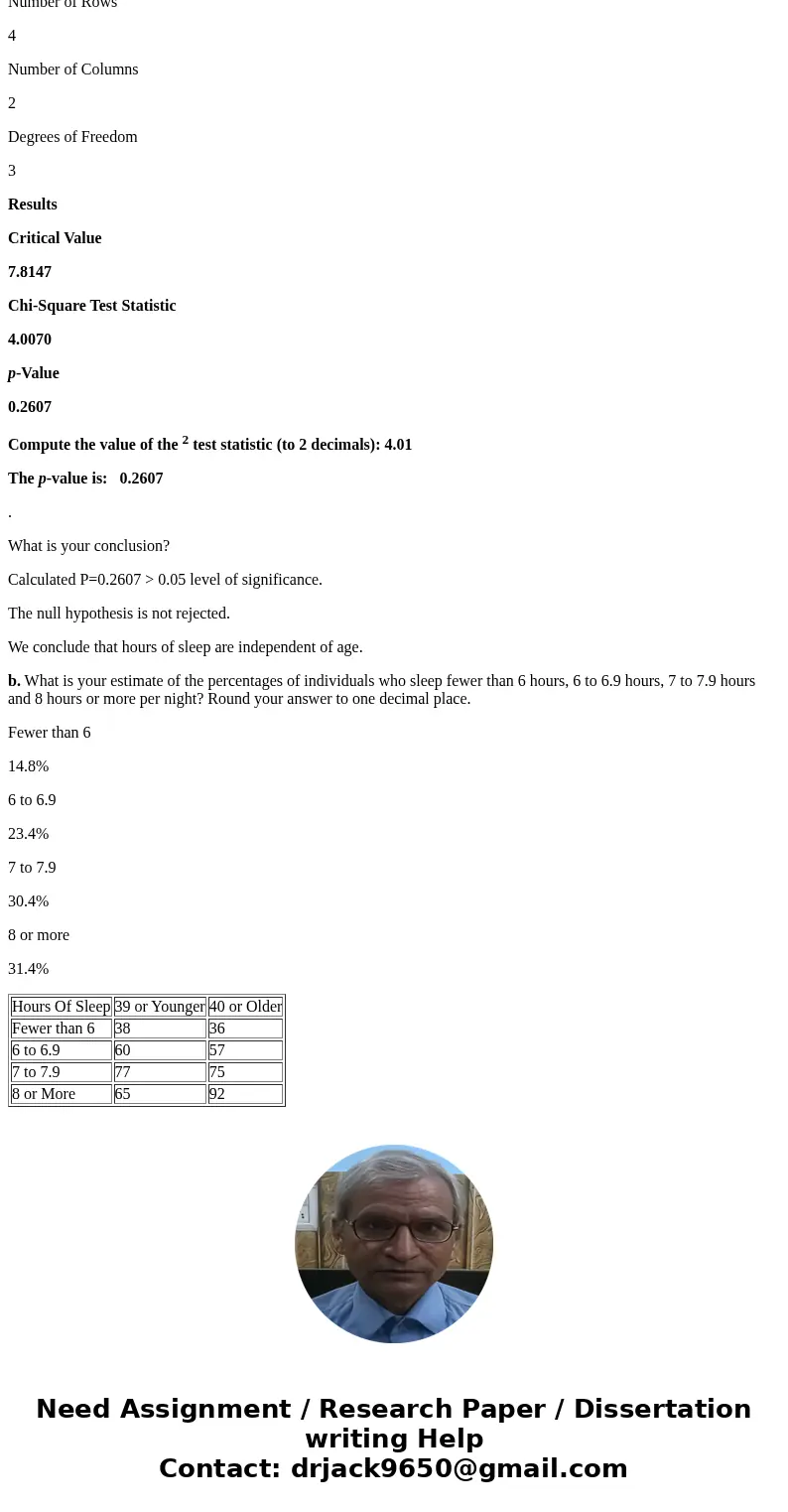
 Homework Sourse
Homework Sourse